The Power of Fire


Fire is a powerful force. When that power is managed, it has many uses. It creates electricity and heat, it cooks food, and it keeps farmland healthy. When it is unmanaged, it is destructive. This includes arson, which is when someone purposefully starts a fire to hurt people or destroy property.
Rural Areas
Rural areas are any places outside of city limits. Usually, there is not a fire department nearby, so it takes longer for firefighters to get to a fire than if they were in town.
Fire Benefits: Some fires in rural areas are meant to clear debris or get rid of trash. Farmers will burn fields after harvest to burn the stubble and return nutrients to the soil. In a few cases, some seeds need fire to germinate.
Fire Dangers: Farmland poses specific types of dangers. Hay and other grains can combust, causing a fire. If it’s a dry summer, lightning or hot farm equipment can cause field fires that can burn hundreds or even thousands of acres.
Respect the Flame: Use common sense when burning fields or using trash barrels. If it’s a windy day or the fire danger is high, fire can quickly become unmanageable.
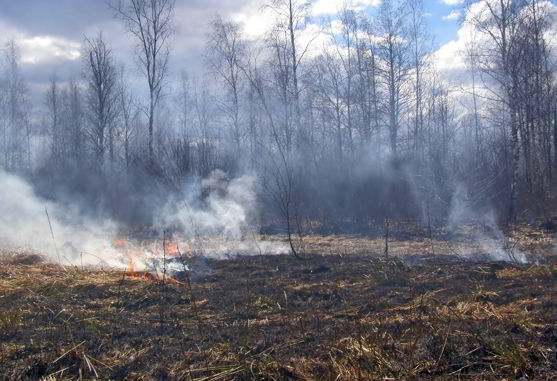
Urban Areas
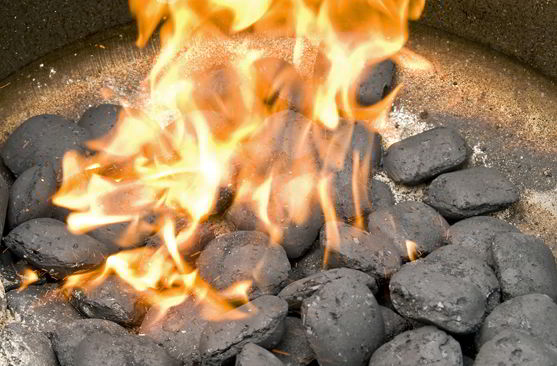
Urban areas are cities and towns. There are more buildings closer together, and there’s usually a fire department nearby.
Fire Benefits: Fires in urban areas are often recreational. People use fire pits in backyards or use grills to cook food outside.
Fire Dangers: If people do not pay attention to a fire, it can cause structure fires. An ember from a fire pit could land on a dry roof, or a flame on a grill could overheat the siding of a building or light a nearby dry bush on fire.
Respect the Flame: Keep grills away from buildings, outdoor umbrellas, and other flammable materials. When using fire pits, clear the area of debris that can easily catch fire, and have a hose or bucket of water nearby to put the fire out when done.
In the Home
We use fire in our homes more often than many people think. Much of our physical comfort—heat, food, and hot water—is the direct result of fire used safely.
Fire Benefits: Fire makes your water heater work and also heats houses and workplaces in the winter. In places with gas stoves or natural gas dryers, it also cooks food and dries clothes.
Fire Dangers: Fireplaces, candles, cigarettes, and electricity are the most common causes of fires in the home.
Respect the Flame: Don’t overload electric wall sockets or you may cause an electric fire. Never leave candles or fireplaces burning unattended—and the same goes for food in the oven or on the stovetop.
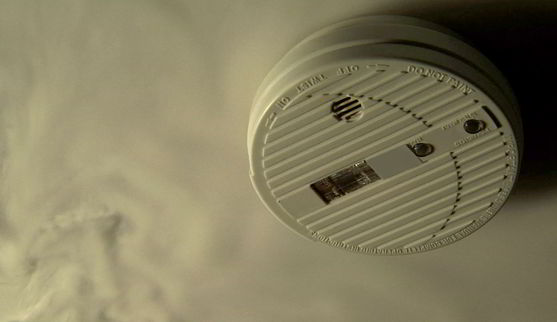
Fire in Nature
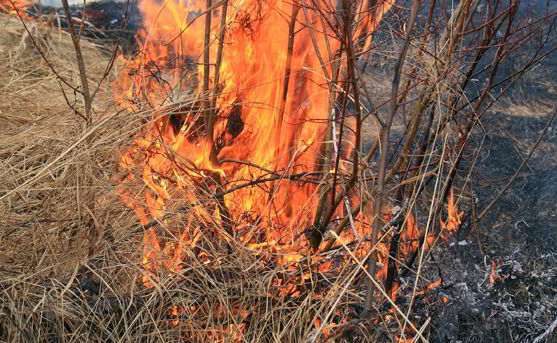
Fire is part of the natural cycle of life in a forest or grassland. It can be triggered by lightning or combustion of dry materials, like grasses, twigs, and leaves. The U.S. Forest Service even performs prescribed burns in national and state forests to reduce the risk of a wildfire.
Fire Benefits: It rejuvenates the landscape, by starting the germination of seeds, and opens space for sunlight to reach plants underneath the tree canopy, like in a forest.
Fire Dangers: No one can predict when nature will cause a fire. Instead, people need to take preventive steps to keep homes safe in case a naturally started fire happens. This includes creating a zone around a building of plants and other materials that will slow the progress of a fire toward a building.
Respect the Flame: Precaution is the best advice for dealing with naturally occurring fires. This means planning ahead and making sure you have what you need to put the fire out.
Popcorn Anyone?
Brain Check
1. Why do farmers and ranchers burn fields?
- It scares away grizzly bears.
- It helps make it rain.
- Field burning kills weeds and makes the earth more fertile.

2. Field-burning can be done at any time.
- True–but Tuesdays and Thursdays are best.
- False. High winds and dry conditions make field-burning very dangerous. Always learn the Fire Danger Index before you burn outside.
3. Some wild plants need fire to activate their ____.
- Passwords
- Seeds
- Cellphones

4. Without fire, we could not have ____.
- Cars that run
- S'mores
- Both cars that run and s'mores
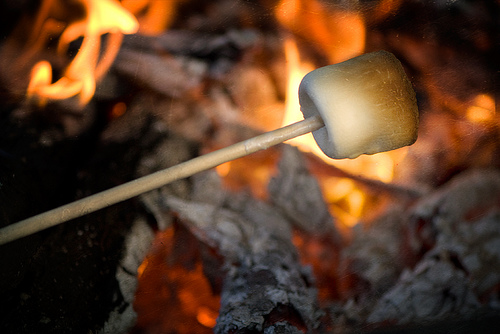
5. Arson—starting a fire on purpose to hurt someone or some property—is a serious crime and results in some serious time.
- True
- False
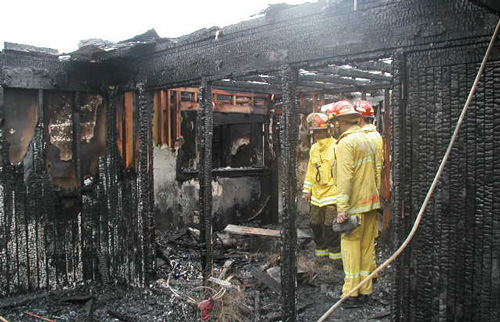
6. Outdoor fires can start when hot BBQ grills are placed near _____.
- Sandboxes
- Grasses or shrubs
- Pools

7. Modern candles are quite safe and can be left burning in an empty room.
- True. And Batman is really an android.
- False. Any unattended fire—even a tiny candle—can burn down a home.

8. If your fireplace has a glass safety screen, it’s safe to leave the house with the fireplace burning.
- True. And Hello Kitty is really a mountain goat.
- False. It is never safe to leave any type of fire unattended—anywhere.

9. Without fire, we would not have ____.
- Hot water
- Heated homes
- Hot water and heated homes
10. Fires can start without humans.
- True. For example, lightning starts many wildfires every year.
- False. Animals don't have opposable thumbs and can't rub two sticks together.
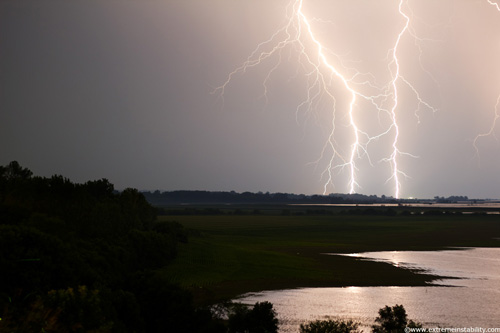
11. What are fires called if they happen outside?
- Happen-outside fires
- Wildfires
- Gertrude

12. A _____ burn is an intentional, controlled fire used to reduce the amount of fuel for a wildfire, which helps control the wildfire.
- Prescribed
- Sun
- Chemical
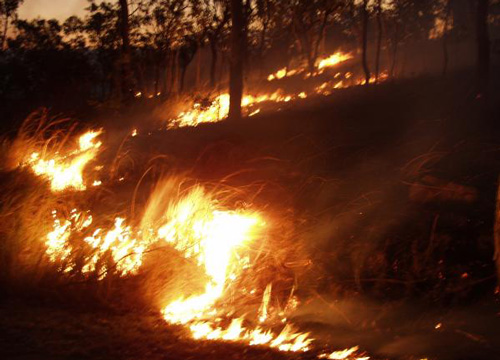
Results
Congrats! You’ve finished the quiz! Your score is




